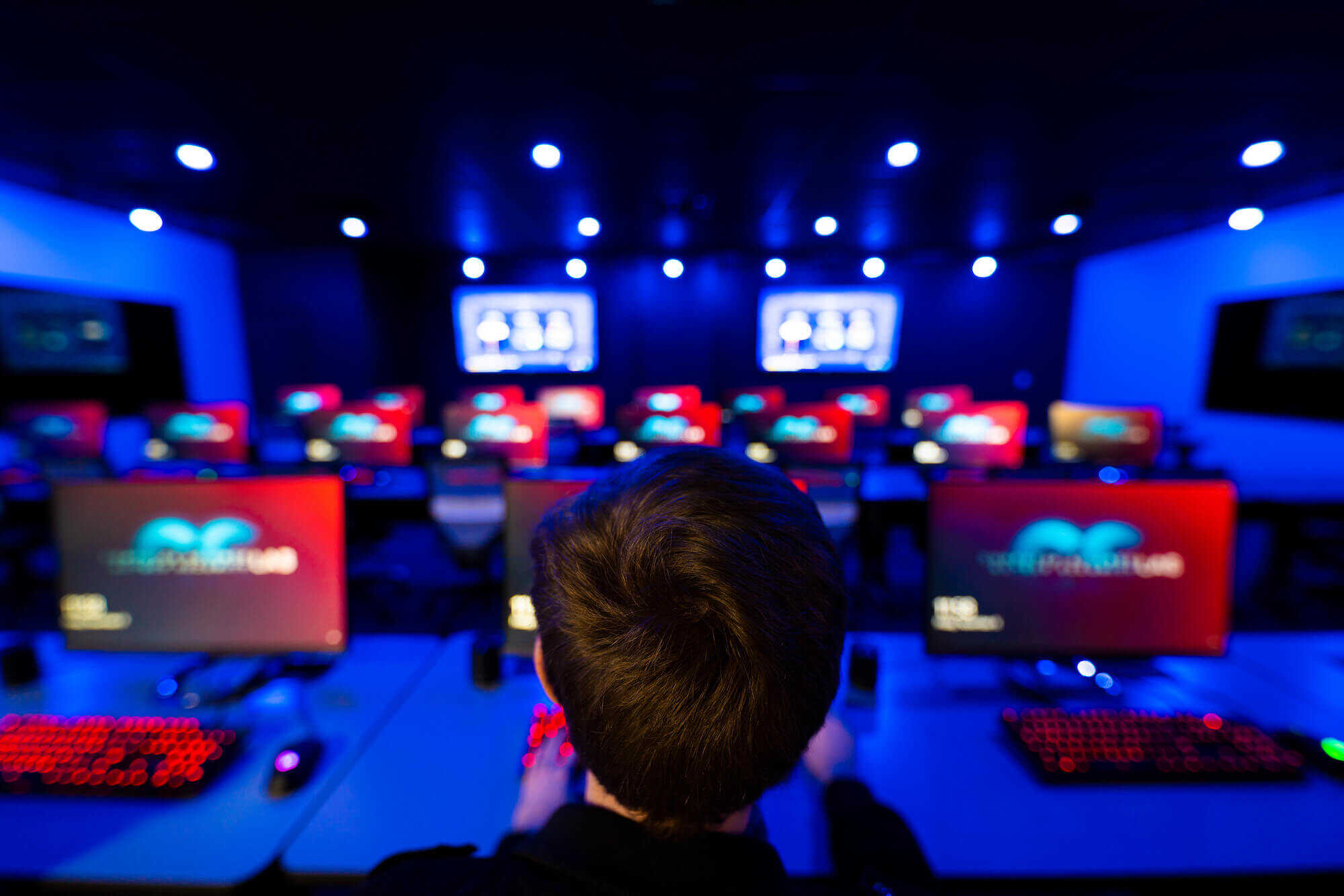A lot of construction in one of the metal buildings along Glaske Drive this summer signaled some exciting news. The university ripped out sheetrock walls; made electrical upgrades including floor-mounted receptacles; upgraded flooring, carpet, and ceiling tiles, installed new dimmable LED smart lighting and more to create a new, 1,036-square-foot, high-tech cybersecurity lab for LETU’s computer science department.
With 21 computer stations in a sleek, glassed-in lab, the space is a visually appealing and functional teaching space, made for the kinds of projects and programs that CS students and faculty need. Each computer is top notch.
“It’s like sitting down behind the wheel of a sports car,” said LETU Dean of the College of Education, Arts and Sciences Dr. Larry Frazier, about the new facility. “The high-powered computer equipment is the kind of quality that a prospective CS student would notice, and our CS facilities need to match the top quality of our faculty and computer science program.”
like sitting down behind the wheel of a sports car,” said LETU Dean of the College of Education, Arts and Sciences Dr. Larry Frazier, about the new facility. “The high-powered computer equipment is the kind of quality that a prospective CS student would notice, and our CS facilities need to match the top quality of our faculty and computer science program.”
Computer science is one of the largest majors on the LETU residential campus with almost 100 majors, Frazier said. “It’s a big department, and it didn’t have a space to grow,” he said. “This new lab allows us to grow and do things in class that the computer science students and faculty couldn’t do before.”
Dr. Glyn Gowing, associate professor of computer science, teaches two cybersecurity classes in the new cyber lab this semester.
“The students love it! They absolutely love it!” said Gowing, who also chairs LETU’s online computer science program. “They think the computers are cool, and they are excited to come here to work in it.”
The cyber lab computers run faster and have more memory than regular lab computers. Gowing plans to add some virtual machines for multiple operating systems running at the same time so students can practice hacking and attacking those machines to learn “white hat” (ethical) hacking.
“The two big screens at the front make things much more visible for students,” he said. “The openness of the layout is good, and the computers are faster and more capable for the exercises that we will use with newer software. Another feature is the interactivity and how students can share their screens up on the front screens so everyone can see what’s happening.”
Cybersecurity classes are not the only beneficiaries of the new lab space.
“The entire computer science department is benefitting from this lab,” Gowing said. “We have a game development concentration, so it has use for computer graphics classes to give students exposure to leading edge equipment, and civil engineering students can do some of their simulations on these computers because they are powerful enough to do them quickly.” Gowing said students have talked about starting up an e-sports club in competitive computer gaming. “Since we have game development, it makes sense our students would get into that competition.”
Dr. Brent Baas, LETU’s computer science chair, said the new cyber lab is a great addition to the computer science department, which began back in 1976 when Dr. Larry Anderson announced a computer science minor as part of the mathematics department offerings.
“From that point to today, we have grown from one CS minor to offering seven residential majors, two online majors, and an associate degree and certificate in cybersecurity, both available online,” Baas said.
“Computer science works closely with departments across campus, including engineering, aviation, business, mathematics, and criminal justice—CS is The polytechnic program touching many fields and has the potential to take advantage of all the university’s programs,” Baas said. “Our game development students depend on the offerings in the humanities for developing their creativity, and psychology allows majors to focus on the human element of colleagues and end-users.”
Baas said students who do well in computer science are usually those who know what they know about math and are open to learning more, have an interest in problem solving and an excitement about the future of computer science and its incredible potential.
“It’s one of the most exciting, dynamic, and demanding fields out there,” Baas said. “The employment opportunities for our graduates continues to be strong. Computing professions offer challenging yet rewarding careers in this field of the future. Our main concern is to provide men and women of integrity with a foundation in computer science to allow them to be the builders of the future.”